Fr. Sebastian Sankoorikal
Call Number : PER-16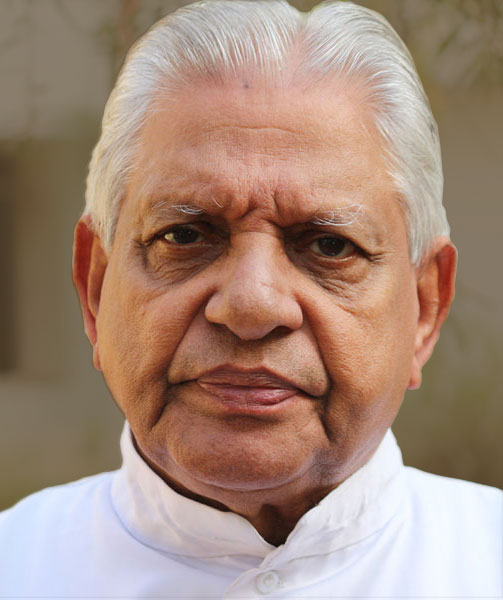 Fr. Sebastian Sankoorikal
Fr. Sebastian Sankoorikal A Syriac Music Legend
(1935-2021)
| Name | Fr. Sebastian Sankoorikal (1935-2021) |
| Native Parish | Narakkal, St. Mary's Church |
| Ordained on | 27-09-1961, by Cardinal Joseph Parecattil |
| Expertise | A Syriac Music Legend |
| Seminary | Minor Seminary (1952-54), Papal Seminary, Kandy (1954-55), Philosophy & Theology, Papal Seminary, Pune (1955-61) |
| Higher Education | M.A.(Eng. Lit.), B.Sc.(Physics), L.Ph. B.D |
The Christian Musicological Society of India is deeply honored to pay homage to a great singer, a musical treasure of the Syro Malabar Church, and a resource person for our Aramaic Project. Fr. Sankoorikal was the only Indian who was proficient in two monumental music traditions: Latin and Syriac. He could sing Gregorian chants and Syriac chants comfortably. He was the first Malayalee to become choirmaster at Papel Seminary in Pune. He held the Syriac tradition close to his heart and said, Syriac is like our mother. The interview that he gave us on July 22 in 2014, is a precious document of the status of the Syriac language in the 21st century (https://youtu.be/acKGYVtVZ9s). Thank you, Fr. Sebastian. May the angels welcome you to join their choir in heaven to sing their favorite hymn, Qandisa Alaha, and please pray for our Aramaic Project. Reference: https://youtu.be/acKGYVtVZ9s
- Dr Joseph J. Palackal, CMI
Studio recording of Solemn Qurbana in Syriac. Pre-1962 version. Fr. Sebastian Sankoorikkal.
We are fortunate to have yet another set of songs from the pre-1962 version of the Solemn Syriac Qurbana in the voice of a celebrated singer. Fr. Sebastian Sankoorikkal, a multi-faceted music personality, decided to make a studio recording of selected songs from the Syriac Qurbana with the accompaniment of modern electronic musical instruments. The reason for the selection of non-traditional musical instruments was to make these songs more appealing to the younger generation of Syro Malabar Catholics, who are tuned to modern musical sonorities. Fr. Sankoorikkal wanted to pass on the legacy of a great musical tradition that he mastered during his younger days to the future generations that may not have the privilege of practicing such kind of music.
Fr. Sankoorikkal begins the Qurbana with a solemn iteration of the minor doxology (1:13) with Halleluia. This is one of the peculiarities of the pre-1962 Qurbana. We heard another example of staring Qurbana with the minor doxology in Aramaic Project-172 Fr, Paul Kodamullil (See video and liner notes in https://youtu.be/wwwhJUsZi6I ). Both priests, however, sing different texts and follow different performance practices. Fr. Sankoorikkal sings out the simple text with the choir responding in a call-response style. In contrast, we hear a subdued recitation of the minor doxology with the Trisagion in a low voice in the Qurbana of Fr. Kodamullil. (See the note on the minor doxology in Resources for Researchers, call no. 008-105 ). It is a clear indication that priests had considerable freedom in the choice of text and performance practice. There are several other adaptations of Latin texts in Syriac translation that went out of vogue in the revised missal of 1962.
The Lord’s Prayer does not follow “Thesbohtha l’alaha” (Glory to God). Instead, the choir continues with the Syriac translation of the Latin Gloria in Excelsis Deo.
See video, at https://youtu.be/wwwhJUsZi6I. The various recordings of the pre-1962 versions of Qurbana that we have posted on this channel might be an excellent resource for scholars to study the history of Syro Malabar Qurbana.
In 2014, we had an opportunity to record an interview with Fr. Sankoorikkal ( see Aramaic Project 25: https://youtu.be/acKGYVtVZ9s )
Fr. Sankoorikkal sings 'Witawangunnen." during the Funeral services for priests
Fr. Sebastian Sankoorikkal sings the famous chant, "Witawangunnen", from the funeral service for priests in the Syro Malabar Church. This is Fr. Abel's Malayalam version of the Syriac chant," Etha Pus Lek Baslama" (Farewell O Church, peace to you). Fr. Sankoorikkal is the best exponent of this chant. He has touched many hearts by singing this chant at the funerals of many priests.
The Christian Musicological Society of India is deeply honored to pay homage to a great singer, a musical treasure of the Syro Malabar Church, and a resource person for our Aramaic Project. Fr. Sankoorikal was the only Indian who was proficient in two monumental music traditions: Latin and Syriac. He could sing Gregorian chants and Syriac chants comfortably. He was the first Malayalee to become choirmaster at Papel Seminary in Pune. He held the Syriac tradition close to his heart and said, Syriac is like our mother. The interview that he gave us on July 22 in 2014, is a precious document of the status of the Syriac language in the 21st century (https://youtu.be/acKGYVtVZ9s). Thank you, Fr. Sebastian. May the angels welcome you to join their choir in heaven to sing their favorite hymn, Qandisa Alaha, and please pray for our Aramaic Project. Reference: https://youtu.be/acKGYVtVZ9s
- Dr Joseph J. Palackal, CMI
Fr. Sebastian Sankoorickal in conversation with Dr. Joseph J. Palackal
Fr. SEBASTIAN SANKOORICKAL - സുറിയാനി (പാരമ്പര്യം) എൻ്റെ അമ്മയാണ്! - (Syrian tradition is my Mother)
Fr. Sebastian Sankoorikkal leading the reconciliation rite in Syriac during Mass in Malayalam.
Fr. Sebastian Sankoorikkal. Solemn Qurbana in Syriac (pre-1962 version)
Homage to a Syriac Music Legend Fr. Sebastian Sankoorikkal
Fr. Sebastian Sankoorikkal sings the famous chant, "witawangunnen," from the funeral for priests in the Syro Malabar Church.
Fr. SEBASTIAN SANKOORICKAL - സുറിയാനി (പാരമ്പര്യം) എൻ്റെ അമ്മയാണ്! - (Syrian tradition is my Mother)
Melody of "Rahem Alai Alaha," Penitential Psalm 51. Fr. Sankoorikkal


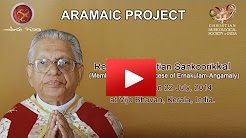 Fr. Sebastian Sankoorickal in conversation with Dr. Joseph J. Palackal
Fr. Sebastian Sankoorickal in conversation with Dr. Joseph J. Palackal
 Fr. SEBASTIAN SANKOORICKAL - സുറിയാനി (പാരമ്പര്യം) എൻ്റെ അമ്മയാണ്! - (Syrian tradition is my Mother)
Fr. SEBASTIAN SANKOORICKAL - സുറിയാനി (പാരമ്പര്യം) എൻ്റെ അമ്മയാണ്! - (Syrian tradition is my Mother) 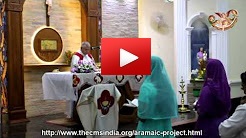 Fr. Sebastian Sankoorikkal leading the reconciliation rite in Syriac during Mass in Malayalam.
Fr. Sebastian Sankoorikkal leading the reconciliation rite in Syriac during Mass in Malayalam. 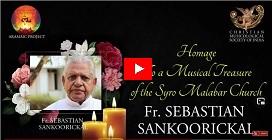 Homage to a Syriac Music Legend Fr. Sebastian Sankoorikkal
Homage to a Syriac Music Legend Fr. Sebastian Sankoorikkal 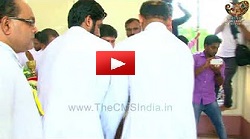 Witawangunnen - Funeral services for Bishop James Pazhayattil (1934-2016) Lead Voice - Fr. Sebastian Sankoorikkal
Witawangunnen - Funeral services for Bishop James Pazhayattil (1934-2016) Lead Voice - Fr. Sebastian Sankoorikkal 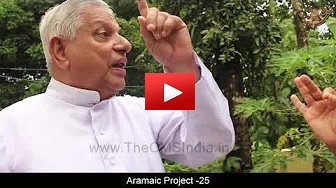 Melody of "Rahem Alai Alaha," Penitential Psalm 51. Fr. Sankoorikkal
Melody of "Rahem Alai Alaha," Penitential Psalm 51. Fr. Sankoorikkal
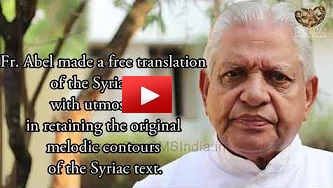 Fr. Sebastian Sankoorikkal sings the famous chant, "witawangunnen," from the funeral for priests in the Syro Malabar Church.
Fr. Sebastian Sankoorikkal sings the famous chant, "witawangunnen," from the funeral for priests in the Syro Malabar Church.
